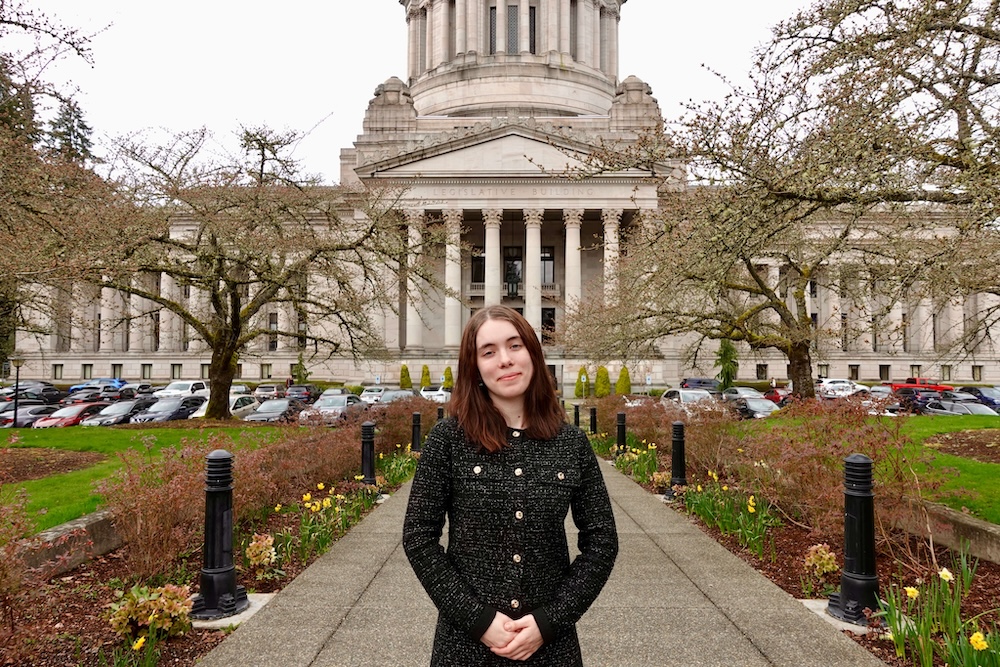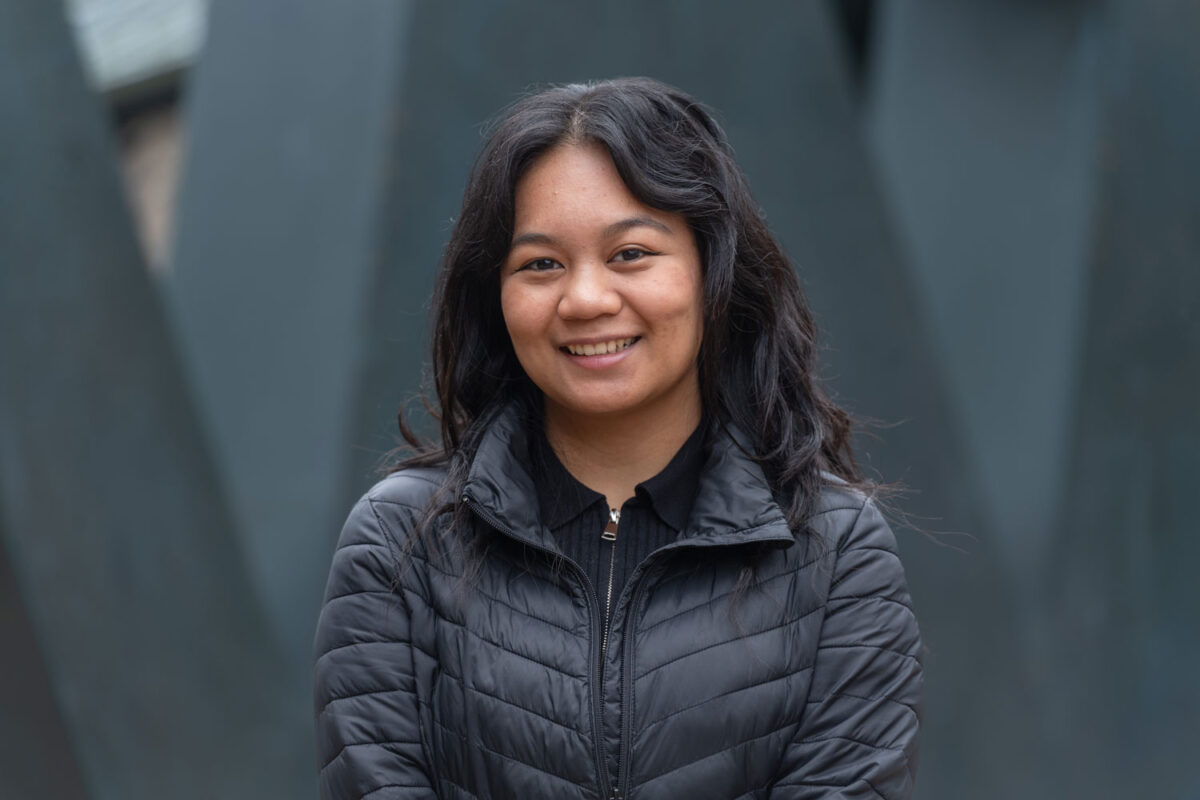04/13/2023
All across the country, local governments are digging deep to answer the call for greater equity and justice. They are surveying community members, creating departments devoted to reform and being strategic about meaningful change.
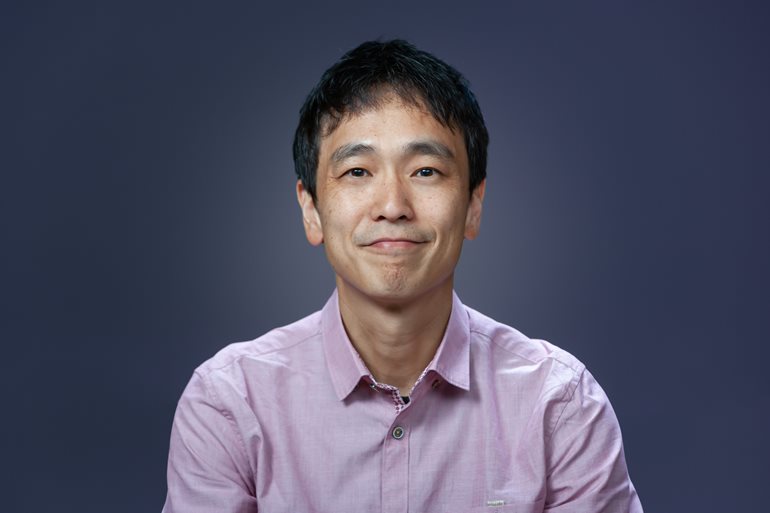
In the nearby city of Lynnwood, Washington, the Diversity, Equity & Inclusion Commission enlisted the help of students in the Master of Arts in Policy Studies program at the University of Washington Bothell to achieve its vision of being a “welcoming city” and a “cohesive community that respects all.”
The nine students, all in a class taught by Dr. Jin-Kyu Jung, professor in the School of Interdisciplinary Arts & Sciences, spent winter quarter on three initiatives: equitable access to affordable housing; English and technology training; and a partnership with African diaspora leaders. They presented their findings to the commission last month.
Laying the groundwork
The collaboration was a year in the making. Doug Raiford, race and social justice coordinator for Lynnwood, met Jung whose MAPS course, Practicum in Policy Studies, provides students with an opportunity to explore different social policy issues through direct engagement and service. It seemed like the right match for the city’s ambitions.
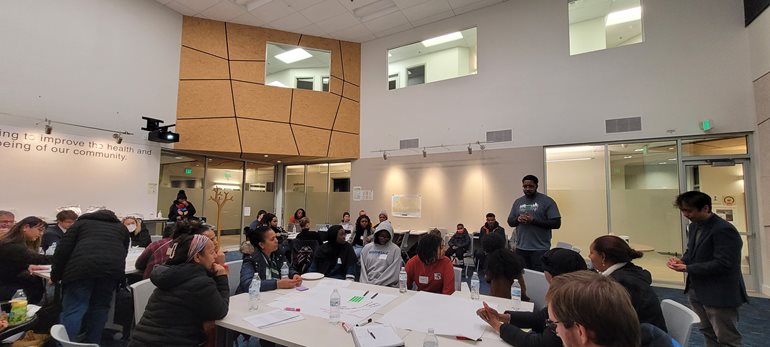
To understand the city’s current position in the eyes of its community members, the students first spent time analyzing results from a 2021 equity survey of more than 800 residents served by four cultural and community organizations. To gain more current input, the students also organized a “world café” event at which more than 100 people of varying backgrounds came together to respectfully discuss and share their concerns.
The students reported that the opportunity to engage directly with a diverse range of individuals from unique communities was both illuminating and inspiring.
“Each rotation produced new conversations and experiences,” said student Sofi Anderson. “It was inspiring to witness how each group would feed off each other, and how similarities between different groups fostered new relationships.
“Our group took away valuable factors that helped us to truly empathize with the community and gain an understanding of their needs.”
More equitable housing
Anderson’s group, which also included Daramfon Ayeni, Hamdi Mohamed and Shaunice Wilson, worked with the YWCA on the equitable housing initiative. From the equity survey and world café, they identified three main issues: 1) rent increases leading to housing insecurity; 2) renter dissatisfaction with landlords due to unclear tenant rights; and 3) a lack of knowledge, creating power imbalances and therefore making it difficult for renters to advocate for their needs.
Through group discussions and one-to-one conversations, the students learned that immigrant participants especially feared deportation or becoming homeless — and that much of this stemmed from language barriers and difficulty navigating rental agreements and leases.
“We were truly enlightened by this experience,” said Wilson. “Not only did it give us insights on how to collect, analyze and use qualitative data to inform policy recommendations, but it also gave us an opportunity to engage with community members at the forefront of these issues. We learned that rarely did they have access to decision-makers about what policy decisions look like on the ground.”
Based on their findings, the students proposed a multi-pronged strategy to the DEI commission. “We recommended language-specific training and workshops on tenants’ rights and simplifying the paperwork, as well as further engagement with community- and culture-based organizations,” said Mohamed. “More long-term, we also suggested affordable housing units with services to address addiction and mental health.”
Language of progress
The world café event was also an invaluable eye-opener for the graduate students who took on the imitative focused on language and technology training.
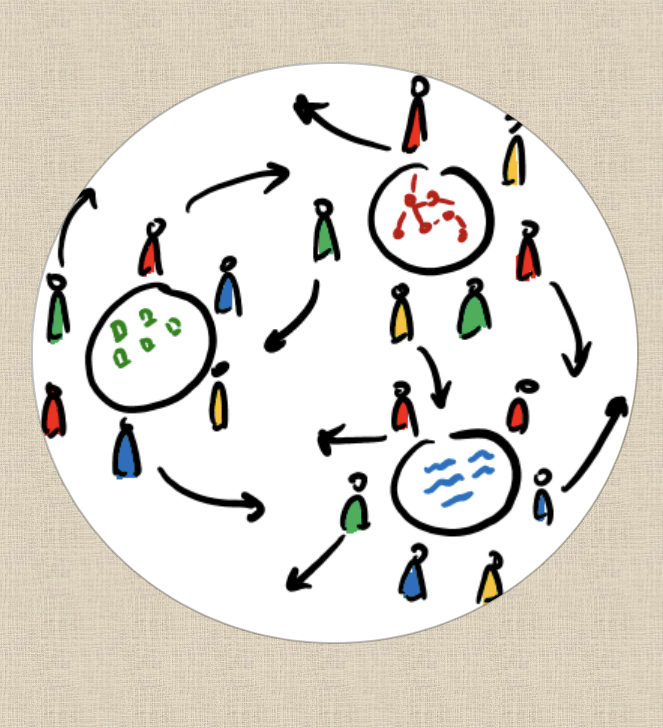
“We learned there were a lot more interests and a greater need for resources than we initially thought,” said Noah Carper, who along with Doanthuy Nguyen and Nicholas Della Giustina worked on this issue with the Latino Educational Training Institute, one of UW Bothell’s longtime community partners. “We wanted to be truly representative of the entire community.”
The student group uncovered a high demand for more language lessons with different learning styles; for spaces to explore native culture and to get support to keep individual cultures alive; for technology literacy assistance; and for services for immigrants, the elderly and people who are disabled.
“Even though each story was unique,” said Nguyen, “most of the concerns would become common themes and speak to the purpose of building a safer and more welcoming environment [in which] to reside and work.
Ultimately, these students recommended additional academic and language tutoring, while emphasizing that it is important to immigrants that they can maintain their native language as well.
“We also recommended advanced software classes for adults on important topics such as banking and doing taxes,” Nguyen said. “But equally important, these classes should be offered outside of the work week for accessibility. Timing is key.”
Keeping culture alive
For their diaspora initiative, students Cameron Dunlap and Nate Samuelson gleaned information from the equity survey, gained insights at the world café and attended meetings of the Washington State Coalition of African Community Leaders. Their goal was to learn more about how Lynwood could partner with that organization and work to better serve the local African community.
Language barriers were a concern, said Dunlap, “but mainly, for this population, a growing issue was the lack of cost-effective resources and extracurricular opportunities for youth. We discovered that people wanted these activities to be appropriate to their communities and provide exposure to different cultures.”
One of Dunlap and Samuelson’s recommendations — to build more accessible parks — would take time and require capital expenditures, so they also suggested more immediate and affordable options such as after-school sports and interactive games in public spaces that already exist.
To encourage engagement across cultures, they proposed the city host an “international day” to build a shared sense of community by showcasing cultures from around the world that are represented in the city’s population.
Continuing the work
Jung said he was inspired by the quality and thoroughness of the students’ work.
“I was proud of their presentations and how they showed themselves to be quite professional, purpose-embedded, sincere and engaged researchers,” he said.
“The way they developed and held the world café event demonstrated how a people-centered approach can be a powerful praxis for community engagement,” he added. “It has great potential to be scaled up as a creative engagement method.”
According to Lu Jiang, chair of the Lynnwood Diversity, Equity & Inclusion Commission, “the students gave us some new information to consider. We will utilize each presentation to inform our goals to make Lynnwood a more equitable and welcoming city.”
The students are continuing to engage with the city during spring quarter through another core MAPS course: Management & Program Evaluation, taught by Dr. Charlie Collins, associate professor in the School of IAS. They are also exploring the possibility of working with Lynnwood’s ParksLove project to help center equity in park system planning.

